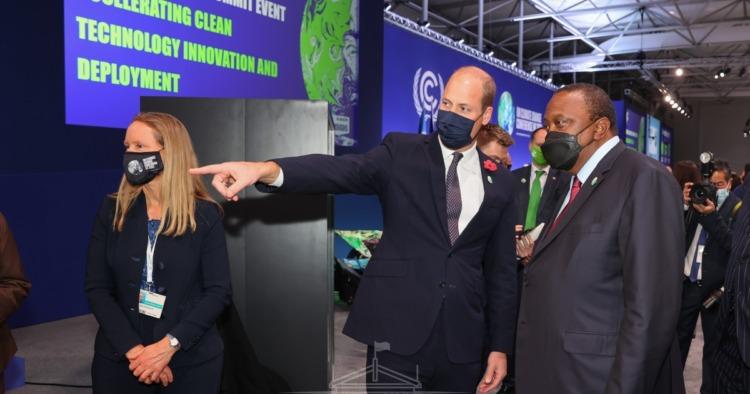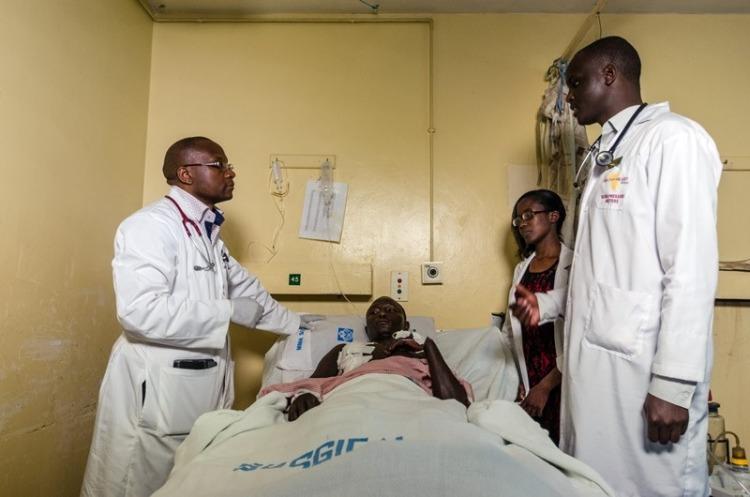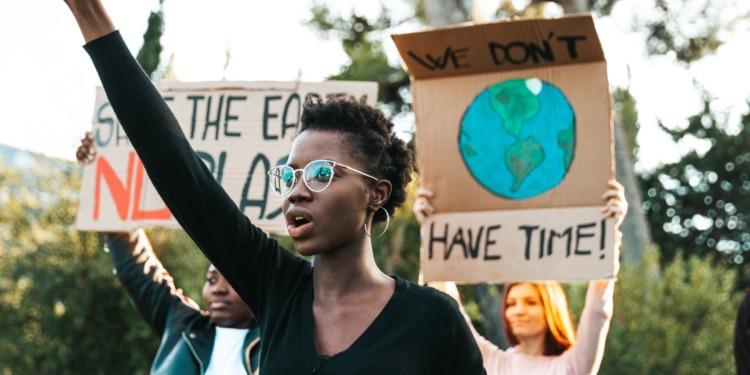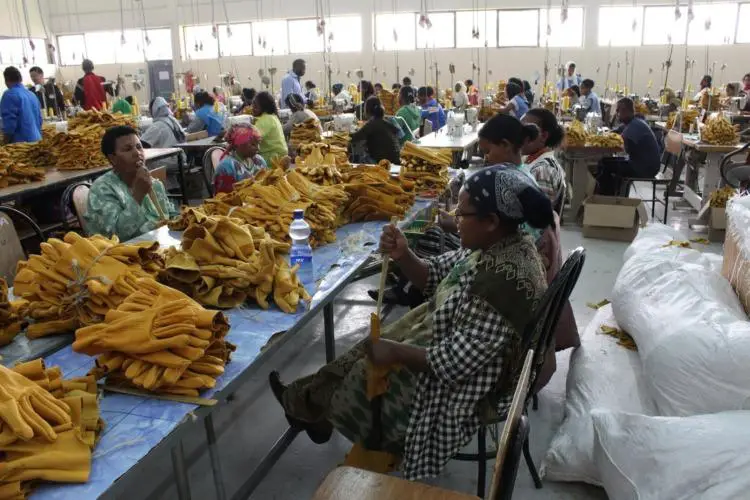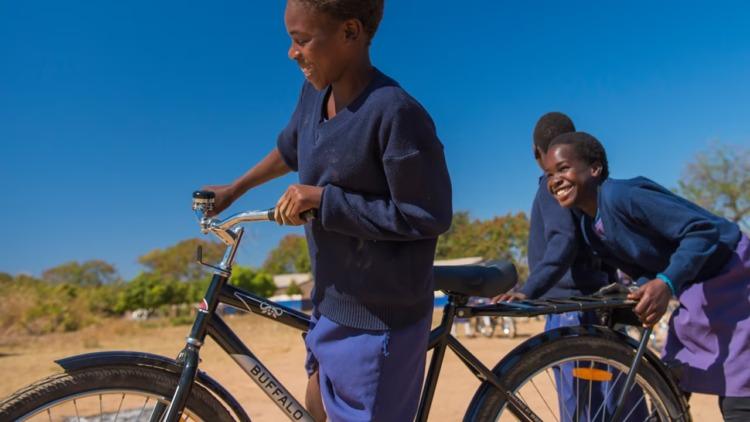- Africa’s new dawn: the rising role of digital and AI in agriculture
- Can Dangote Refinery Transform Africa Energy Ambition
- Gallup Survey: 80 per cent of Kenyan Workers Are Disengaged and Seek New Opportunities
- Madagascar Man Freed from 5KG Tumor After 15-Year Struggle
- How women in Africa are perceived and treated
- Sugar consumption in Kenya to Increase to 1.23 Million Tonnes
- Can Somalia and Turkey Oil deal Bring Change in Somaliland
- Remittances to Kenya dropped to $371.6 million in June, marking a six month low
Browsing: COP26
- US, EU pledge to cut global methane and greenhouse gas emissions by at least 30 per cent by 2030.
- 16 Southern African Development Community (SADC) states have recorded 36 per cent of all weather-related disasters in Africa.
- China, the world’s largest emitter of methane, India and Russia are not part of a pledge to cut down emissions.
The 26th Conference of Parties (COP26) has demonstrated to the world action towards climate change is possible.
As heads of state converge and pledge crucial issues including, the US and European Union announced a global methane pledge, cutting emissions of greenhouse gas by at least 30 per cent by 2030.
The conference, which is attended by countries that signed the United Nations Framework Convention on Climate Change (UNFCCC), has been drawing international attention as climate change impacts the global economy, especially developing economies across the world.
In that context, Africa as a region …
- President Uhuru Kenyatta said renewable energy currently accounts for 73% of Kenya’s installed power generation capacity
- The Kenyan leader called on the international community to invest more in research, innovation and technology transfer
- He also reaffirmed Kenya’s commitment to the below 1.5 degrees climate ambition, and announced the country’s endorsement of the proposed Glasgow decision on ‘power and green hydrogen in the energy sector’
President Uhuru Kenyatta has told the international community that Kenya is determined and on course to achieving full transition to clean energy by the year 2030.
The President noted that renewable energy currently accounts for 73% of Kenya’s installed power generation capacity while 90% of electricity in use is from green sources among them geothermal, wind, solar and hydro-electric installations.
“Renewable energy in Kenya currently accounts for 73% of the installed power generation capacity, while 90% of the electricity in use is from clean sources. We …
- CDC Group will invest over £3 billion (US$ 4 billion) to support emerging economies in Africa and Asia to combat the climate emergency
- The commitment will make CDC one of the world’s largest climate finance investors in Africa and select South Asian markets
- The funding will be invested over the next five years across a number of different sectors, such as renewable power, infrastructure and agriculture, including forestry
British development finance institution CDC Group will invest over £3 billion (US$ 4 billion) to support emerging economies in Africa and Asia to combat the climate emergency, the Group announced during the ongoing COP26.
The commitment will make CDC one of the world’s largest climate finance investors in Africa and select South Asian markets.
According to the Group, the investment contributes to the ‘Clean Green Initiative’ announced this week by Prime Minister Boris Johnson to help developing countries take advantage of green …
The report indicates that major cereal crops which are grown across Africa will be adversely impacted by the first half of this century.
In the worst case climate change scenario, West and Central Africa will register a reduction of yields by 13 per cent, 11 per cent in North Africa while East and Southern Africa will see an 8 per cent drop.
Millet and sorghum, which are not grown by majority of smallholder farmers who make up more than 70 per cent of the agricultural output in Africa, remain resilient and will only incur yield losses of just 5 per cent and 8 per cent respectively by 2050. Wheat and rice, which also happen to be staples, will be the most affected crops losing 12 per cent and 21 per cent respectively in yields by 2050. …
As part of the requirements under the Kenyan Act, the government additionally established an Integrated Monitoring Reporting and Verification (Integrated MRV) system and published Kenya’s National Climate Change Action Plan 2018-2022 (NCCAP). The five year plan requires the government to develop “action plans”, providing mechanisms to assist stakeholders in bringing about low-carbon climate-resilient development.
Angola boasts some of the most ambitious targets for transition to low carbon development in Africa, albeit having ratified the Paris Agreement in November 2020. Since then the country has launched a national development plan, established a climate observatory and implemented a continuous national emissions monitoring system.
In addition, Gambia is committed to reducing its GHG emissions unconditionally, by 2.4 per cent by 2025 having implemented the Sustainable Energy Action Plan in 2015, which sets out the country’s renewable energy targets and corresponding measures necessary for their achievement. It has also committed to terminating oil importation …
Albeit marred with difficulties, green manufacturing in Africa is possible and the continent stands to greatly benefit from the transition. It will promote inclusive economic transformation through domestic manufacturing and a commodity-based industrialization process, capitalizing on the continent’s resources and opportunities presented by the dynamic nature of the global structure of production.
Green industrialization has been identified as the holy grail of Africa’s socio-economic transformation; infusing green initiatives into value chain activities for instance, during sourcing and processing of raw materials to the marketing and selling of finished products. The Economic Commission for Africa (ECA) economic report on Greening Africa’s Industrialization, deduces that it is imperative for African countries to identify green industrialization entry points, set policies that support green industrialization and mobilize resources from the public and private sectors, as it is a precondition for sustainable and inclusive growth. …
The world today is at a crossroads dealing with numerous crises including the decades-long climate crisis which has led to unprecedented biodiversity loss and rising inequalities among other challenges.
In 2019, the Covid-19 pandemic struck knocking everything off balance.
It is against this backdrop that the UN climate change conference (COP26) is taking place in Glasgow, Scotland.
As the world is resurging from the negative economic effects of the pandemic, the COP was a good place, and in good time, to help the world reset when it comes to matters climate change. One of the biggest casualties of the pandemic was transport which badly affected value chains as logistics became impossible.
Making non-motorised transport chic
Globally, transport is one of the biggest contributors to pollution. To address this challenge, the world has slowly been making positive steps towards making non-motorised transport chic in a bid to cut down …






